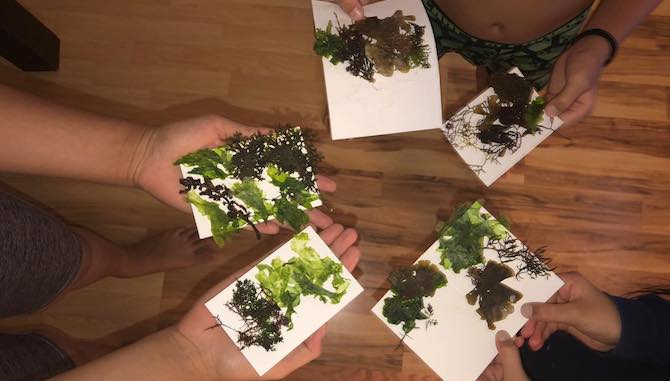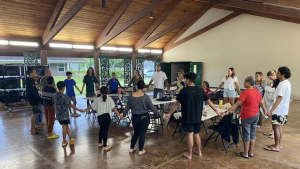
University of Hawaiʻi at Mānoa researchers co-authored the second edition of the Do No Harm Guide, a community-friendly and practical resource on how to report data ethically, particularly with historically oppressed populations. Do No Harm Guide: Additional Perspectives on Data Equity, was published by the Urban Institute and hears directly from members of groups and communities traditionally underrepresented in data research and communication.
Data practitioners have historically fallen short in data collection, application and representation, leading to lasting harm and distrust of researchers and fewer pathways for advancement in data fields. The first volume published in 2021, Do No Harm Guide: Applying Equity Awareness in Data Visualization, was a first-of-its-kind resource born from nearly 20 interviews with data experts on how data analysts, researchers and communicators can apply an equity lens to the way they work with and visualize data.
The UH authors from the Thompson School of Social Work & Public Health, the College of Tropical Agriculture and Human Resources (CTAHR) and their community partners, authored a chapter on Decolonizing Research and Data in the Hawaiian Community: A Waimānalo Model, which highlights their efforts of decolonizing data and research through a community-academic partnership called Waimānalo Pono Research Hui.
“Our team is proud to be a part of this community-friendly practical guide that sheds light on critical issues of data equity and ethical representation. We are excited to provide our efforts in Waimānalo as an example of how we have been working towards decolonizing research and data,” said Jane Chung-Do, the lead author of the chapter.
Spotlight on Waimānalo community model
Using the Waimānalo Pono Research Hui model as an example, the team discussed how communities can be involved and help to drive the research that happens in their communities. Recommendations for researchers are provided including understanding that pilina (connection) is at the heart of all successful and effective research partnerships. In addition, the importance of weaving consent throughout all processes of research, equitable compensation for communities, data sovereignty and culturally appropriate dissemination were also highlighted.

“The Waimānalo Pono Research Hui has a structure in place not only to keep Hawaiian values and research protocols as a critical component that will care for their ʻāina (land) and community presently but also for the community’s future great-great-great grandchildren’s generation that will be on the same land that their great-grandparents lived on,” added co-author Kahau Vegas.
“We really advocate for Indigenous community members to be at the forefront of collecting and analyzing data, as their expertise and lens leads to valid and actionable solutions of health inequity,” said co-author Samantha Keaulana-Scott.
The team includes Chung-Do, Vegas and Keaulana-Scott of the Thompson school’s Office of Public Health Studies; Ilima Ho-Lastimosa and Ted Radovich from CTAHR; and Kirk Deitschman and Kenneth Ho Jr. of Ke Kula Nui O Waimānalo.
By considering the lessons from the guide when collecting, analyzing and communicating data, researchers and data analysts can create work that is not only more equitable and inclusive, but also more likely to be embraced by the people who are best positioned to use it in their lives and in their communities.

